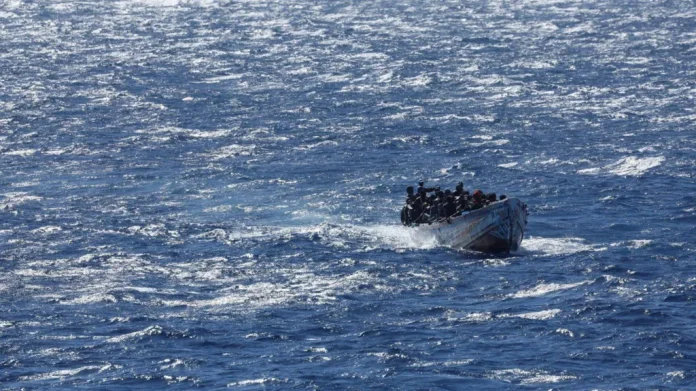The maritime incident off the coast of Mauritania, authorities have recovered the bodies of 89 migrants from a capsized boat in the Atlantic Ocean. The vessel, initially carrying 170 individuals, departed from the Senegalese-Gambian border area last week, aiming for Europe via one of the most perilous migration routes. Amidst the tragedy, nine survivors, including a five-year-old girl, were rescued, while dozens remain missing.
Mauritania, situated as a critical transit point for migrants from West Africa seeking passage to Europe, witnesses thousands of boats departing annually. The allure of reaching Spain’s Canary Islands drives many migrants to embark on these treacherous journeys, often aboard overloaded and unsafe vessels. The Spanish government reported a dramatic increase in arrivals, with nearly 40,000 individuals reaching the Canary Islands last year—a figure that doubled compared to the previous year.
The perilous nature of these crossings is underscored by the alarming mortality rate. According to estimates by the charity Ca-minando Fronteras, over 5,000 migrants lost their lives attempting to reach Spain by sea in the first five months of 2024 alone. This grim statistic highlights the desperate lengths migrants are willing to endure in pursuit of better opportunities in Europe.
The humanitarian crisis and the complexities of migration management, the European Union took steps to support Mauritania, granting €210 million in aid in April. A significant portion of this funding, approximately €60 million, is earmarked to bolster efforts in combating undocumented migration to Europe. This financial assistance aims not only to address immediate humanitarian needs but also to strengthen border controls and enhance regional cooperation to mitigate migration-related challenges.
The incident off Mauritania’s coast underscores broader issues concerning migration governance and the humanitarian responsibilities of both European and African nations. The Mediterranean and Atlantic routes remain perilous, serving as dangerous pathways for migrants escaping poverty, conflict, and instability in their home countries. The dynamics of migration are shaped by complex factors, including economic disparities, political instability, and climate change, which drive individuals to undertake hazardous journeys in search of safety and opportunity.
Efforts to manage and mitigate migration risks require a multifaceted approach, encompassing humanitarian aid, development assistance, and international cooperation. The EU’s financial support to Mauritania reflects a commitment to addressing the root causes of migration and strengthening regional capacities to manage migration flows effectively. However, the challenges remain formidable, as evidenced by recurring tragedies at sea and the persistent demand for safe and legal pathways for migrants.
The escalating humanitarian crisis, stakeholders must prioritize the protection of migrant rights, including access to asylum and safe migration routes. Humanitarian organizations play a crucial role in providing assistance to migrants in distress at sea, while governments must uphold their obligations under international law to ensure the safety and well-being of all individuals, regardless of their migration status.
The tragedy off Mauritania’s coast serves as a poignant reminder of the urgent need for coordinated and compassionate responses to migration challenges. As global migration patterns evolve and intensify, there is a growing imperative for sustained international solidarity and cooperation. Addressing the underlying causes of migration, promoting development opportunities in origin countries, and enhancing legal migration channels are essential steps toward fostering safer and more humane migration pathways.
The capsizing of a migrant boat off Mauritania’s coast is a heartbreaking episode that underscores the perils faced by migrants seeking a better life in Europe. The incident highlights the need for comprehensive and coordinated efforts to address migration challenges, protect human rights, and prevent future tragedies at sea. As international stakeholders continue to grapple with migration complexities, a compassionate and proactive approach is essential to safeguarding the lives and dignity of all individuals on the move.























